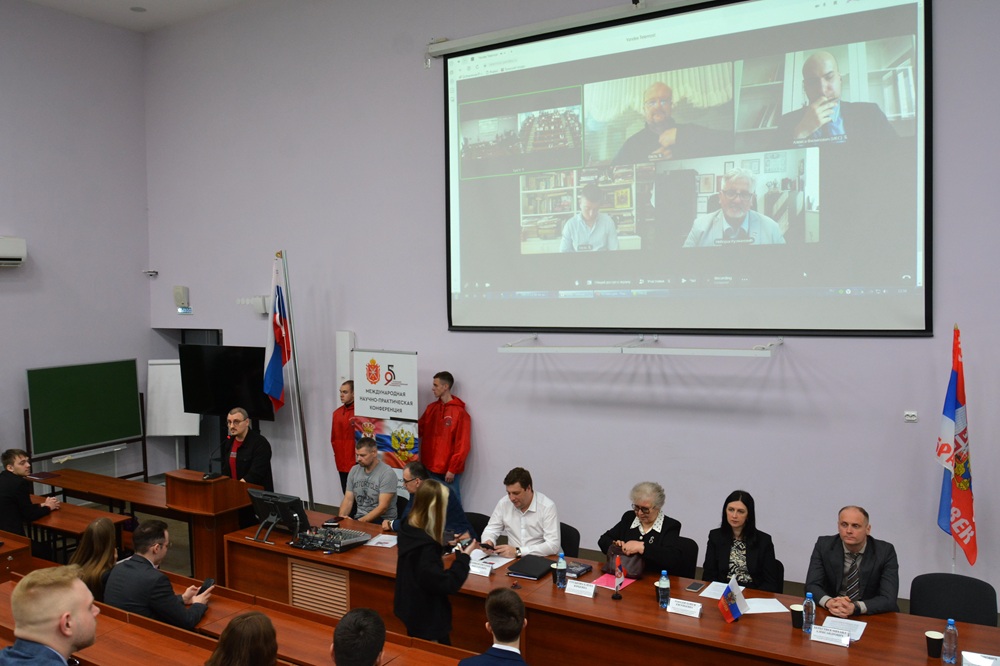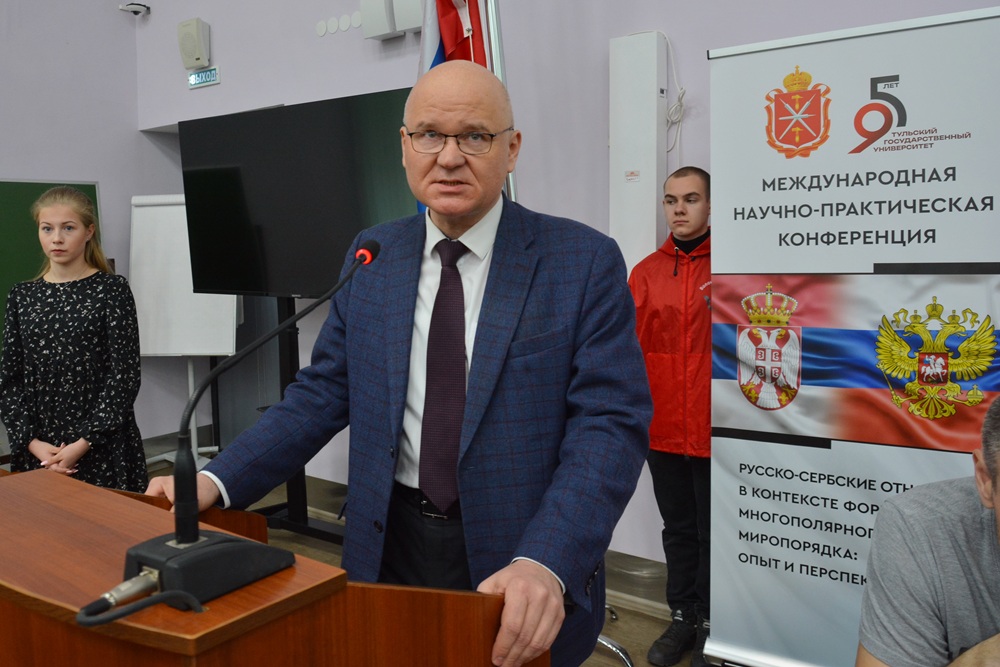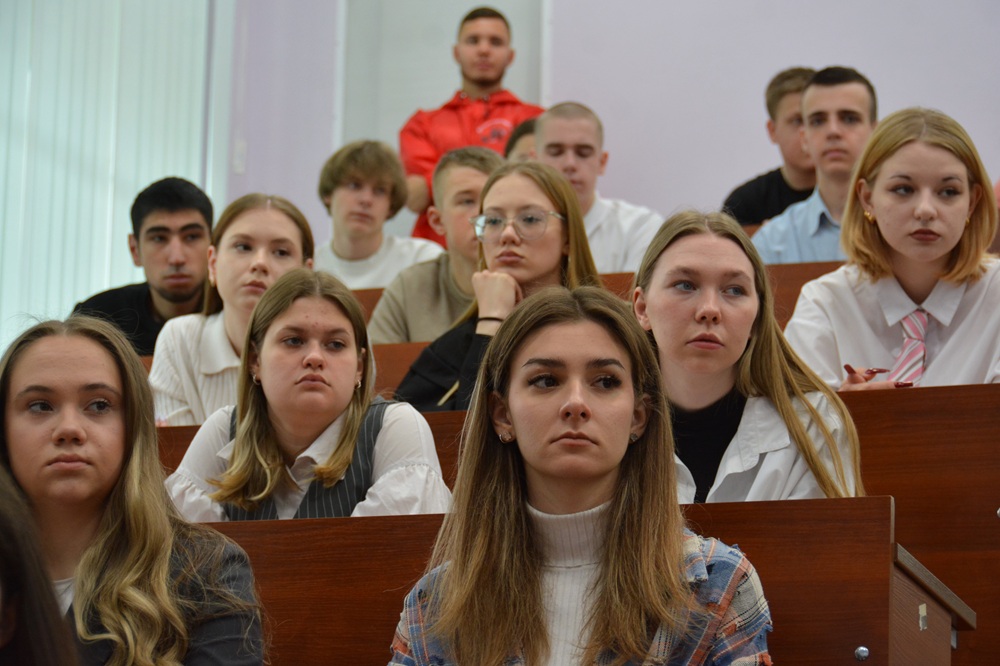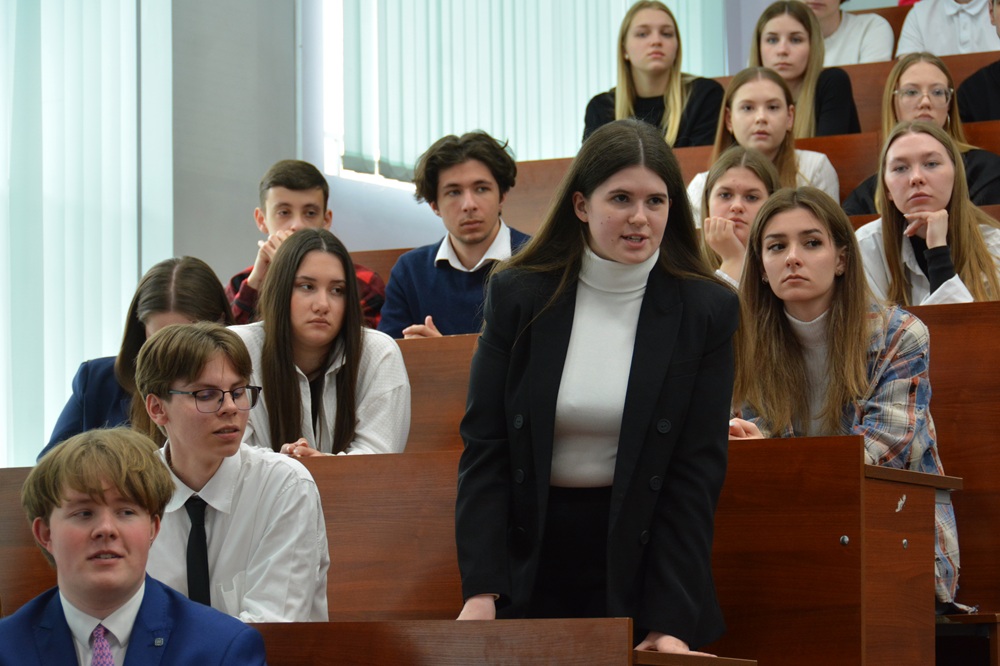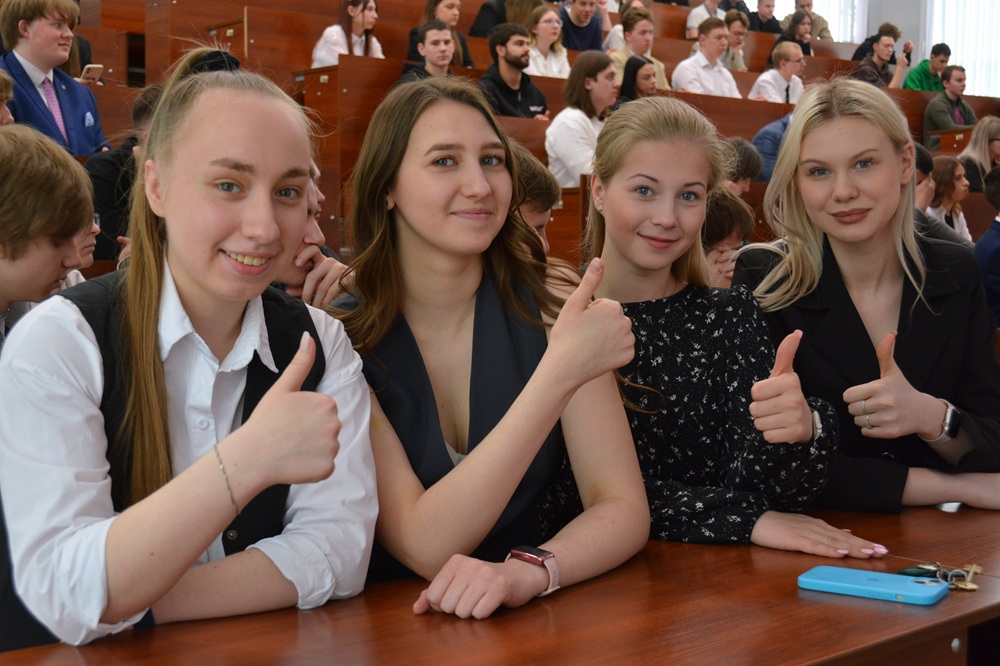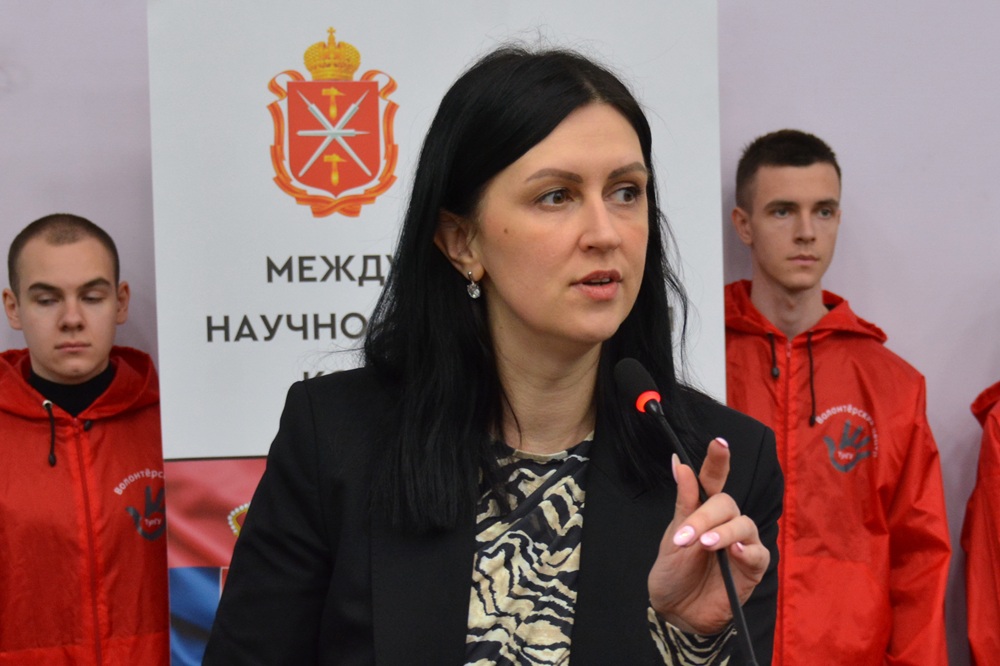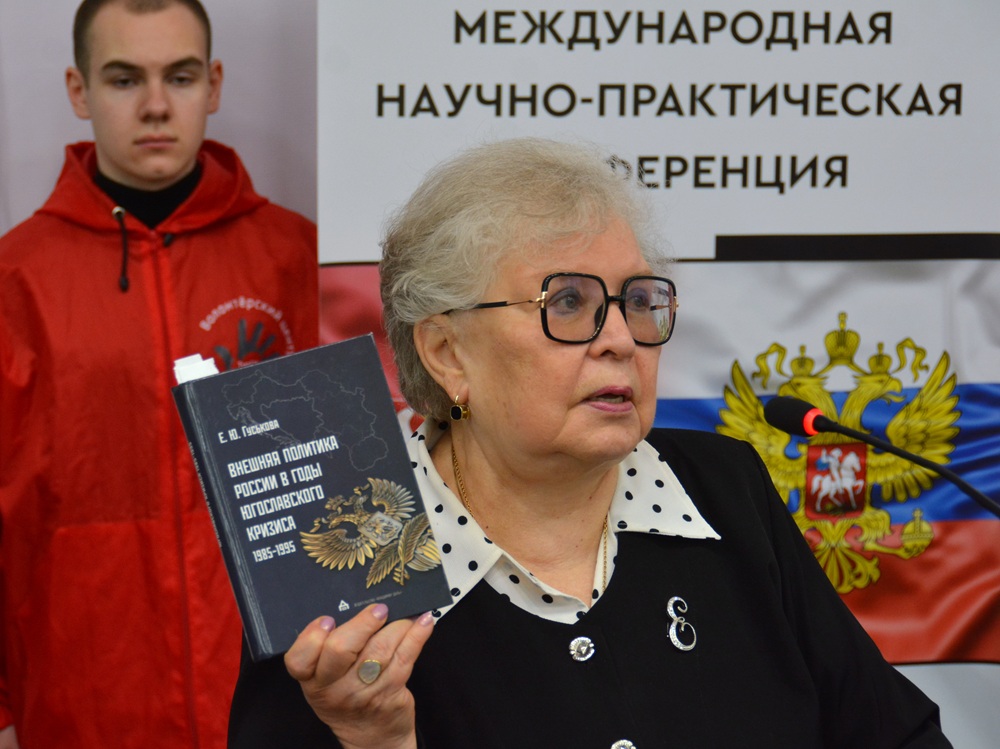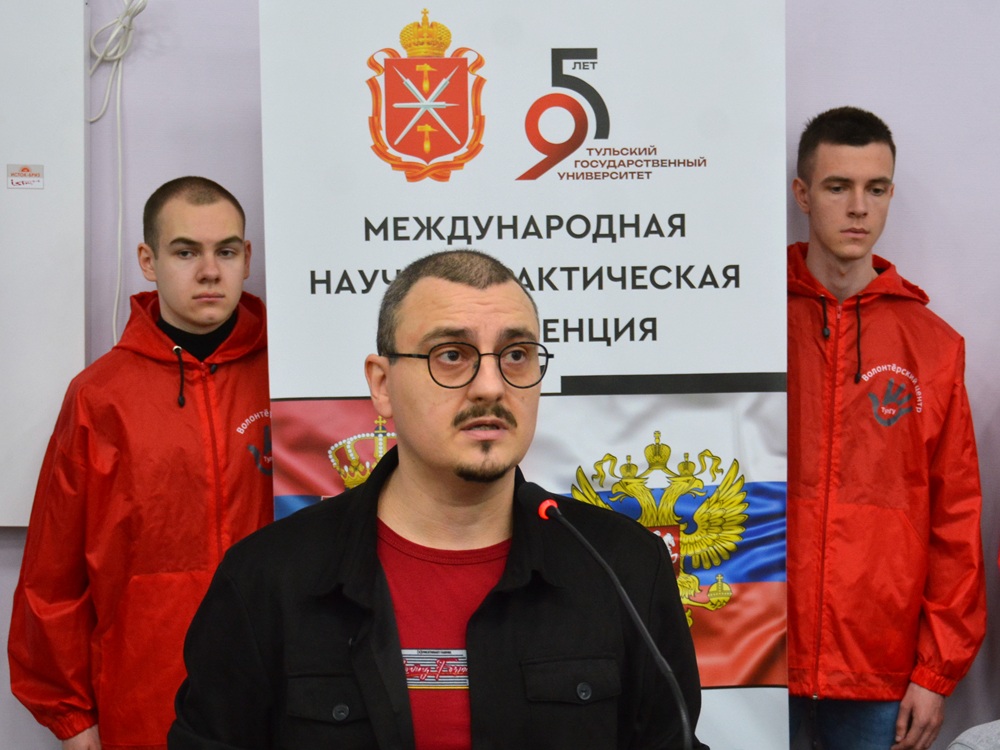- 11.04.2025
Russian-Serbian relations were discussed at TulSU
These two days passed for the Institute of Law and Management of Tula State University under the sign of Russian-Serbian relations.
On 10 April, Yelena Yuryevna Guskova, Doctor of Historical Sciences, Chief Researcher of the Institute of Slavic Studies of the Russian Academy of Sciences, Academician of the Serbian Academy of Sciences and Arts (SASA) and of the Academy of Sciences and Arts of the Republika Srpska (ANURS), gave an open lecture “Serbophobia and Russophobia are strong in the West: can it be countered?” to students and representatives of the academic community of Institute of Law and Management.
Today, on 11 April, the International Scientific and Practical Conference “Russian-Serbian Relations in the Context of the Formation of a Multipolar World Order: Experience and Prospects” was held in a hybrid format.
Both events were organised by the Department of History of State and Law.
The plenary session was opened by Olesya Yevgenyevna Labadze, Vice-Rector for International and Project Activities.
The international conference, said Sergey Nikolayevich Kovalyov, Candidate of Economic Sciences, Head of the Department of History of State and Law, is held with the grant support of the Government of the Tula Region. And the grantee is the assistant of the chair Milan Stojanovic, Serbian by nationality. The fact that Russian and Serbian colleagues take part in the conference shows that representatives of both countries continue to make steps towards each other on their research paths.
The theme of the conference, Sergey Nikolaevich noted, is very topical. It refers to the problem of transition from a unipolar to a multipolar world, and, in fact, to an equal world order.
Olesya Yevgenyevna Labadze held an award ceremony for the winners and runners-up of the Multipolar World presentation contest.
The whole podium was occupied by the first-year students of the Institute of Law and Management.
The following students were awarded:
- Diploma of the I degree - Sofya Tyulyubaeva;
- Diploma of the II degree - Kirill Petrukhin;
- Diploma of the III degree - Ruslan Morozov.
Very interesting and diverse reports were presented at the plenary session.
Professor Ratko Ristić from the University of Belgrade presented his paper “History and Memory - Serbia, Russia, Europe”. The speaker expressed the hope that no one can ever spoil the good relations between Serbia and Russia.
Elena Yuryevna Guskova, Doctor of Historical Sciences, Chief Researcher of the Institute of Slavic Studies of the Russian Academy of Sciences, Academician of the Serbian Academy of Sciences and Arts (SASA) and of the Academy of Sciences and Arts of the Republika Srpska (ANURS), introduced her book “Russian Foreign Policy in the Years of the Yugoslavian Crisis 1985-1995”. The guest spoke about how complex and polysemantic was the policy of the last years of the USSR and the new Russia towards the disintegrating Yugoslavia.
Alexa Filipović, a researcher at the Institute of European Studies, prepared a paper for the conference entitled “From “Brigada” to “Patsan's Word””: Representation of Russian Cinema on Serbian Television, in Cinemas and on Streaming Platforms”.
The speaker noted, in particular, that the positive perception of Russian films by the Serbian audience can be explained by such factors as the cultural proximity of the two nations, the similarity of the socio-political context in the 1990s and 2000s, the preservation of the memory of significant historical events, and the participation of Serbian actors in Russian projects.
Stevan Gajić, Doctor of Political Science, researcher at the Institute of European Studies and visiting professor at MSIIR (Moscow State Institute of International Relations), spoke about Serbia's participation in anti-colonial uprisings.
Head of the Centre for International Cooperation “Russian-Balkan Dialogue” Evgeniy Viktorovich Osenkov introduced the participants of the conference with the activities of the organisation he heads.
Mark Stefan Wilhelmovich Peters, a lecturer at Andrássy University in Budapest, a retired German officer and military analyst, shared his reflections on Germans' current perception of Russian-Serbian relations. The Russian Federation, he emphasised, is a stronghold of traditional values for many representatives of European states.
The historian, lecturer of the Russian Society “Znaniye”(“Knowledge”) Sergey Vladimirovich Fedoseyev presented a report about the concentration camps established during the First World War “Doboj and Talerhof - two sides of one project”.
After each presentation, students of the Institute of Law and Management asked questions to the Russian and Serbian researchers.
The conference turned out to be not only fascinating, but also, what`s very important, lively. All this gave the large-scale scientific event a special sound.
Tatyana Krikunkova
Photo by Mikhail Gindin


